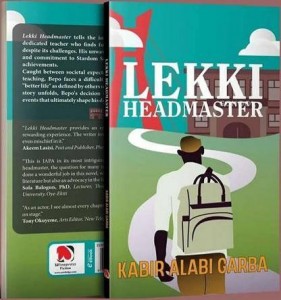Waec

Literature-Obj
1ABDDCADBAC
11DBDADABAAB
21DCCAABCDBA
31DADBDDBAAC
41BACCBCBDCA
(7)
Heathcliff’s hatred for Hindley Earnshaw stems from a deep-rooted rivalry that began in childhood. After Mr. Earnshaw brought Heathcliff home from a trip to Liverpool, Heathcliff quickly became his favorite, much to the chagrin of his own son, Hindley. Feeling supplanted and jealous, Hindley harbored a deep resentment towards Heathcliff. This animosity only intensified after Mr. Earnshaw’s death, as Hindley, seizing control of Wuthering Heights, subjected Heathcliff to humiliation and degradation, relegating him to the status of a servant. This cruel treatment sowed the seeds of Heathcliff’s lifelong vendetta against Hindley, seeking vengeance for the injustices he suffered.
The death of Mr. Earnshaw marked a significant turning point in Heathcliff’s fortunes. Under Mr. Earnshaw’s care, Heathcliff was brought into the family and treated with kindness, almost as a son. However, Mr. Earnshaw’s death left Heathcliff vulnerable to Hindley’s animosity. With Mr. Earnshaw gone, Hindley became the master of Wuthering Heights and took immediate steps to lower Heathcliff’s status within the household, effectively transforming him from a favored adoptive son into a maltreated laborer. This drastic change in Heathcliff’s circumstances contributed to the development of his character, fueling his desire for revenge and his ambition to gain power and status, which would drive much of the novel’s plot.
(5)
In Ralph Ellison’s “Invisible Man,” blindness serves as a powerful metaphor for the lack of understanding and the deliberate refusal to acknowledge and appreciate the individuality and humanity of others, particularly African Americans in the context of the novel. The recurring motif of blindness underscores the social and personal implications of racism and the willful ignorance that perpetuates it. Characters in the novel who are physically or metaphorically blind are often those who cannot or refuse to see the protagonist for who he truly is, instead projecting their own prejudices and expectations onto him.
This metaphor extends to institutions and societal norms that are blind to the injustices faced by the narrator and others like him. Ellison uses the metaphor to critique the blindness of American society to its own shortcomings and the ways in which systemic racism is perpetuated by this collective sightlessness. The metaphor is woven deeply into the narrative structure, influencing the protagonist’s journey towards self-awareness and underlining the novel’s broader themes of visibility, perception, and identity.
SECTION-A (PICK ONE FROM (1&3) TAKE NOTE!!!
(1)
In Buchi Emecheta’s “Second Class Citizen,” conflict in marriage is portrayed through the tumultuous relationship between Adah and her husband, Francis. The novel exposes the various dimensions of marital strife, grounded in cultural expectations, gender roles, and personal aspirations that clash between the couple.
Adah, ambitious and driven, seeks to achieve education and autonomy, aspirations which are frequently stifed by Francis, who adheres to traditional Nigerian views that prioritize the husband’s needs and goals over the wife’s. Francis’s control over Adah extends from financial to emotional, often using her immigrant status and lack of independent resources to keep her dependent and submissive. His resistance to her pursuit of education and a career leads to numerous conflicts, highlighting the struggle of many women who fight against patriarchal constraints both in their personal lives and in broader society.
The portrayal of their marriage is a microcosm of the broader societal issues faced by immigrant families, especially those from patriarchal societies trying to find their footing in a more liberal Western context. The conflict in their marriage thus serves to illustrate not only personal discontent but also the larger cultural and systemic challenges that can affect immigrant lives, particularly those of women. Through Adah’s experiences, Emecheta critiques the oppressive structures that limit women’s roles to subservient positions both in family and society.
(3)
In “Unexpected Joy at Dawn” by Alex Agyei-Agyiri, the meeting between Nii Tackie and Tally O is a pivotal moment that encapsulates the essence of rediscovery and reconnection amidst the sprawling urban chaos of Accra. Nii Tackie, deeply immersed in his quest to locate his deported sister, stumbles upon Tally O, an old friend, in a serendipitous encounter that serves as a brief respite from his tumultuous journey. This meeting is not merely a reunion of two friends; it symbolizes the intertwining of past and present, highlighting the enduring bonds of friendship and shared history. As they converge in the vastness of Accra, their exchange is steeped in nostalgia, yet underscored by the harsh realities of their environment, offering a poignant reflection on the nature of human connection in times of adversity.
The narrative further delves into the complexities of human interactions and moral dilemmas through Nii Tackie’s rejection of Linda’s advances. This subplot is intricately woven into the fabric of the story, showcasing Nii’s unwavering moral fortitude and dedication to his familial obligations. Linda’s advances towards Nii introduce a layer of temptation and conflict, challenging his resolve and testing his loyalty to his absent sister. Nii’s decision to spurn Linda’s overtures is emblematic of his deep-seated principles and the profound sense of duty that guides his actions. This rejection is not merely a refusal of romantic entanglement; it is a reaffirmation of Nii’s commitment to his quest and the values that underpin his character. Through this interaction, the novel explores themes of fidelity, honor, and the sacrifices inherent in the pursuit of a noble cause, enriching the narrative with a nuanced examination of the human spirit.
RECOMMENDED TOPICS
- JAMB 2025 UTME/DE registration document – step-by-step on how to apply for UTME and DE

- JAMB postpones 2025 UTME Registration to February 3rd

- JAMB Officially Announces 2025 UTME Registration, Exam, Mock Dates, Cost and Important Details

- The official reading novel for Jamb 2025 is Lekki Headmaster

- Subjects for Computer Science in JAMB for Guaranteed Success


